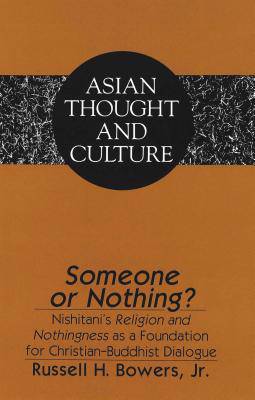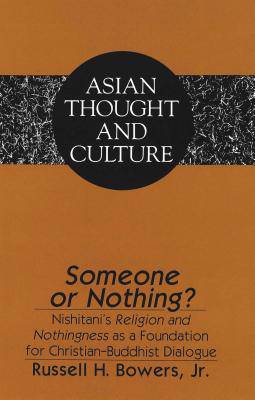
- Afhalen na 1 uur in een winkel met voorraad
- Gratis thuislevering in België vanaf € 30
- Ruim aanbod met 7 miljoen producten
- Afhalen na 1 uur in een winkel met voorraad
- Gratis thuislevering in België vanaf € 30
- Ruim aanbod met 7 miljoen producten
Zoeken
Someone or Nothing?
Nishitani's Religion and Nothingness as a Foundation for Christian-Buddhist Dialogue
Russell H Bowers
€ 57,45
+ 114 punten
Omschrijving
In the context of globalization and pluralism, Christians and Buddhists have opened an instense dialogue. Their goals have progressed beyond seeking mutual understanding to seeking mutual transformation and a «unity beyond differences.» Unfortunately, in these discussions evangelical Christians have remained mute. Someone or Nothing? therefore attempts first to convince evangelicals of their need to listen and participate, and second to inject their concerns into the dialogue already underway. It does so by examining Religion and Nothingness, the opus magnum of the late dean of the Kyoto School of Philosophy. Keiji Nishitani's work is condensed and then compared with basic evangelical Christian beliefs. This comparison unearths difficulties in attaining the desired unity, as well as topics that future discussions might profitably address.
Specificaties
Betrokkenen
- Auteur(s):
- Uitgeverij:
Inhoud
- Aantal bladzijden:
- 264
- Taal:
- Engels
- Reeks:
- Reeksnummer:
- nr. 27
Eigenschappen
- Productcode (EAN):
- 9780820428321
- Verschijningsdatum:
- 1/12/1995
- Uitvoering:
- Hardcover
- Formaat:
- Genaaid
- Afmetingen:
- 160 mm x 230 mm
- Gewicht:
- 529 g

Alleen bij Standaard Boekhandel
+ 114 punten op je klantenkaart van Standaard Boekhandel
Beoordelingen
We publiceren alleen reviews die voldoen aan de voorwaarden voor reviews. Bekijk onze voorwaarden voor reviews.











